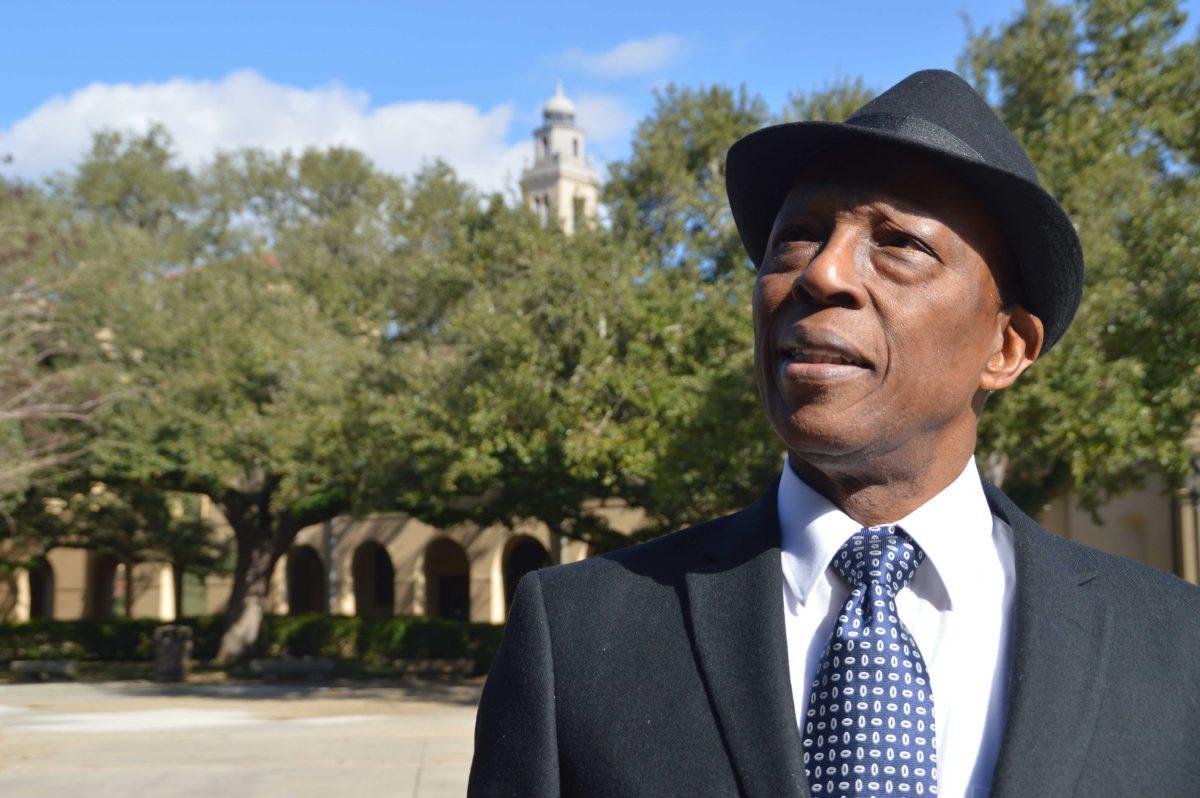As part of a series of virtual seminars about breaking racial barriers at LSU, Emeritus Professor Thomas J. Durant read and discussed the second half of his book “A View from the Inside…Thirty-Six Years of Desegregation at LSU” on Wednesday, Nov. 4.
The three-part series entitled Journey for Justice is put on by the Black Faculty and Staff Caucus, an organization that Durant co-founded at LSU 45 years ago.
Durant arrived on LSU’s campus as a sociology professor in 1973, when the University was debating desegregation. In his book he documents his personal experiences and involvement in the fight for desegregation at LSU, which spanned over his 36 years as a professor.
He calls LSU’s movement for desegregation in the 1970s “LSU’s civil rights movement” because it brought about greater diversity, equality and equity on campus.
Durant said that race relations at LSU have changed for the better, but that change has taken decades of struggle and effort on the part of minority advocates in student and faculty organizations.
“I was one of six African American professors at LSU when I arrived,” Durant said. “The more I got involved in campus life, I saw a need to become more engaged to help promote internal desegregation at LSU. It was a mini Civil Rights Movement to improve the conditions for African-Americans and minorities here.”
Upon his arrival at the University, Durant said there were no signs of African American culture on campus. In fact, buildings boasted the names of Southern Civil War heroes like David F. Boyd and P. G. T. Beauregard, both of whom fought to preserve slavery. More than 40 years later, only one building bears the name of a Black person, A. P. Tureaud Hall.
“At LSU, the environment reflected part of the history of Louisiana and the South that did not embrace the culture of Black people,” Durant said.
To illustrate this in his book, he references Troy H. Middleton, President of LSU in the 1950s and 1960s, for whom the LSU Library was named until efforts to rename it began in 2020.
“President Middleton promoted segregation and fought to maintain the status quo of white supremacy,” Durant said. “He actively tried to stop Black people from being admitted into the institution. Being the President, the leader of the University, he spoke for everyone at the institution, from faculty to the Board of Supervisors to students.”
Durant said that when he heard that LSU was changing the library’s name, he considered it an important gesture to right the wrongs the University made in the past.
“It may be symbolic or cosmetic, but when we have buildings named after people who have reputations of racism and discrimination, we have to go back to check our university’s values,” Durant said. “We have to ask if the people we name buildings after reflect LSU’s values.”
Durant and other Black professors formed the Concerned Black Faculty and Staff Caucus to help spearhead efforts to highlight African American culture and improve the learning environment and working conditions of Black people at LSU. He said that the fight for diversity and inclusion is ongoing.
“Embrace diversity,” Durant said. “Diversity is about sharing a common space, appreciating other peoples’ cultures and learning from those cultures, so we can all help build a more multicultural institution together.”
‘A View from the Inside’: LSU professor leads seminar about breaking racial barriers at LSU
November 6, 2020
Thomas Durant, the first director of AAAS, and his successors have fought to promote the program for over 20 years.





